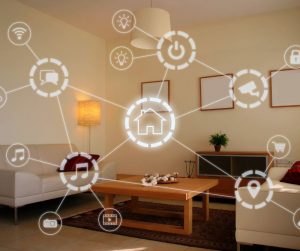 The concept of a "smart home" has been in existence for a considerable period, but recent technological and electronic advancements have propelled it to new heights. The proliferation of smart devices and the Internet of Things (IoT) has transformed the notion of a fully automated and interconnected home from a distant dream into a rapidly evolving reality.
The concept of a "smart home" has been in existence for a considerable period, but recent technological and electronic advancements have propelled it to new heights. The proliferation of smart devices and the Internet of Things (IoT) has transformed the notion of a fully automated and interconnected home from a distant dream into a rapidly evolving reality.
The next era of smart homes focuses on seamlessly integrating technology and electronics to craft a living space that is not only convenient and efficient but also secure. It extends beyond mere voice-controlled lighting and temperature adjustments, aiming to establish an intelligent ecosystem that comprehends and adapts to the needs and preferences of its inhabitants.
A key development in the upcoming generation of smart homes is the incorporation of artificial intelligence (AI). AI enables devices to learn and adjust to user habits, creating a more personalized and intuitive home environment. For instance, smart thermostats can now optimize temperatures based on daily routines, enhancing energy efficiency and ensuring a comfortable living space.
The advent of voice assistants like Amazon's Alexa and Google Assistant marks another significant stride. These assistants can interpret complex instructions, extending their capabilities beyond basic tasks such as turning lights on and off. They can now facilitate activities like grocery ordering, music playback, and providing weather or news updates.
Augmented reality (AR) and virtual reality (VR) integration represent another notable trend in the upcoming generation of smart homes. AR and VR technologies enable users to experience their homes differently, offering virtual simulations of diverse interior designs or visualizations of the home with various furniture or paint colors. This technology is beneficial not only for homeowners but also for interior designers and architects showcasing their designs to clients.
Smart appliances, including refrigerators, washing machines, and ovens, are set to play a significant role in the future of smart homes. These internet-connected appliances can be controlled remotely, streamlining household chores and providing time-efficient solutions. They can also monitor their own performance and issue alerts for necessary maintenance, contributing to time and cost savings for homeowners.
Security is a top priority in the upcoming generation of smart homes, with AI and advanced sensors enabling detection and homeowner alerts for unusual activities like break-ins or fires. Some systems even incorporate facial recognition technology, allowing only authorized individuals to access the home.
The future of smart homes transcends interior spaces, extending to smart outdoor lighting, irrigation systems, and lawn mowers. These innovations make it easier for homeowners to efficiently maintain their outdoor spaces.
However, amid these technological advancements, concerns about privacy and security emerge. As more devices become interconnected and share personal information, it is imperative for manufacturers to prioritize data protection and ensure secure networks.
The next generation of smart homes is poised to revolutionize our living experiences. Through the integration of AI, AR/VR, and IoT, homes will become more personalized, efficient, and secure. The exciting future of smart homes is just around the corner, promising further innovations that will redefine our interactions with living spaces.
For more tech tips, check out our blog!
Subscribe to our newsletter for important tech info.
#TechTips #TechAdvice #coulsontech #technology #technologytips #IT #AI #artificialintelligence #smarthomes












